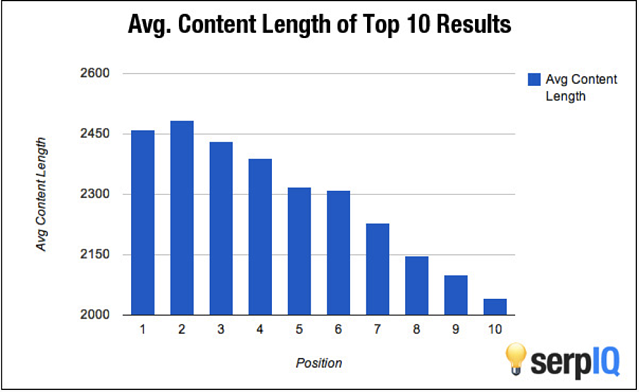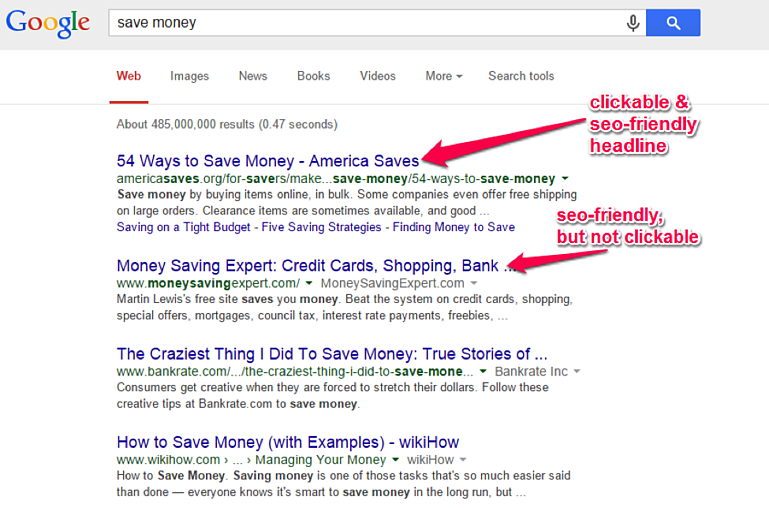Google Search is not an easy beast to tame. It is constantly morphing to accommodate new web technologies, the demands of its users, and to prevent blackhat actors from manipulating results.
As a website creator, this can leave you feeling left out to dry and not in control. But there are plenty of actions you can take to be confident that Google is ranking you favorably.
1. CREATE THOROUGH CONTENT
For a long time, content written for Google and other search engines was shallow and brief. This lackluster content often negated the need for informative and well-written content. After all, why spend hours producing quality content if lackluster content would do the job just as well.
To cull that type of behavior, Google implemented updates that prioritized thoroughness over brevity. Due to these updates, content with 2,400+ words is ranked most favorably in search results.

What kind of content can you produce that will give you the length and scope that Google favors? Here are a few ideas to get you started:
- Tutorial of a new tool
- Explain and elaborate on best practices in your industry
- A review of new software
- In-depth evaluation of industry trends
Of course, you should not crank out more than 2,000 words on a topic if it is unnecessary to do so. Some topics may genuinely need no more than 500 words to be thorough. If you have explored a topic as much as possible, you can safely publish. No one expects you to squeeze water out of stone.
2. CREATE ACCURATE CONTENT
If grammar is your strength and the feel of red pen feels good in your hand, then you and Google will get along just fine. If neither of those things are true, it is time to brush up on your grammar lessons.
According to Matt Cutts, “the more reputable pages have better spelling and better grammar.” That doesn’t mean every word needs to be perfect. But it does mean that Google takes note of how well-written your content appears to be.
Beyond grammar, Google may start to fact check your content. This could include dates, events, and numbers. While this hasn’t happened quite yet, a report from Google’s research team (PDF) is pointing towards such a future. By using Google’s Knowledge Vault, which contains over 2.8 billion facts, Google could feasibly create a Knowledge-Based Trust score.
3. CREATE HUMAN CONTENT
As SEO ranking factors skew heavily towards quality over quantity and keywords, writers have to play a delicate balance between writing for search engines and writing for the people who actually visit their site.
While keyword placement and headline optimization plays its part, Google is becoming more and more sophisticated by the day. For an excellent example of the nuance content producers must adhere to, check out this image from Neil Patel:

While the SEO-friendly article ranked well, it is still second place to the article that appeals to what people want to click. Additionally, it is worth noting that just because your content ranks well due to SEO-optimization, it is still likely you are losing out on clicks from surrounding competitors with human-friendly headlines.
Furthermore, the actual content needs to be optimized for people. Make sure that your headings within your content are not over-optimized. Avoid keyword stuffing. While these tactics may still work favorably in edge cases, you can be assured that Google is doing everything they can to dissuade content creators from writing for its algorithms. After all, Google’s results are only as good as you make them.
4. CREATE ORIGINAL CONTENT
You have just written and edited two-thousand words for a white paper. Regardless, you still need to get an article up on your blog. Customers, readers, and new business depends on it.
It may strike you as necessary to scrape or quote chunks of content from reputable sources. You may even think that duplicating content from other parts of your site may be a good idea as well.
Trust us. It is not worth it.
Google’s Panda update specifically addresses issues concerning duplicate and scraped content.
At best, if you duplicate large amounts of content on your site, you will struggle to increase your rankings. At worst, Google may penalize you — lowering your rankings significantly.
Still, that will not solve your struggle to come up with original content. Here are are a few of our suggestions:
Of course, none of these idea generators are going to be enough to create truly original content. But they should help get your creative juices flowing.
If you come away with one lesson from this article, it is Google will always prefer quality. Make it your golden rule.

Logical Position, an Inc. 500 digital agency supporting 5,000+ clients across North America. LP is the proud recipient of Google’s Lead Generation Premier Partner of the Year and Microsoft's Global Channel Partner of the Year 2024! The award-winning agency offers full-service PPC management, SEO, Paid Social, Amazon and Creative Services for businesses large and small. As a Google Premier Partner, Microsoft Elite Partner & Meta Business Partner, LP is in the top 1% of ad spend managed across platforms.



